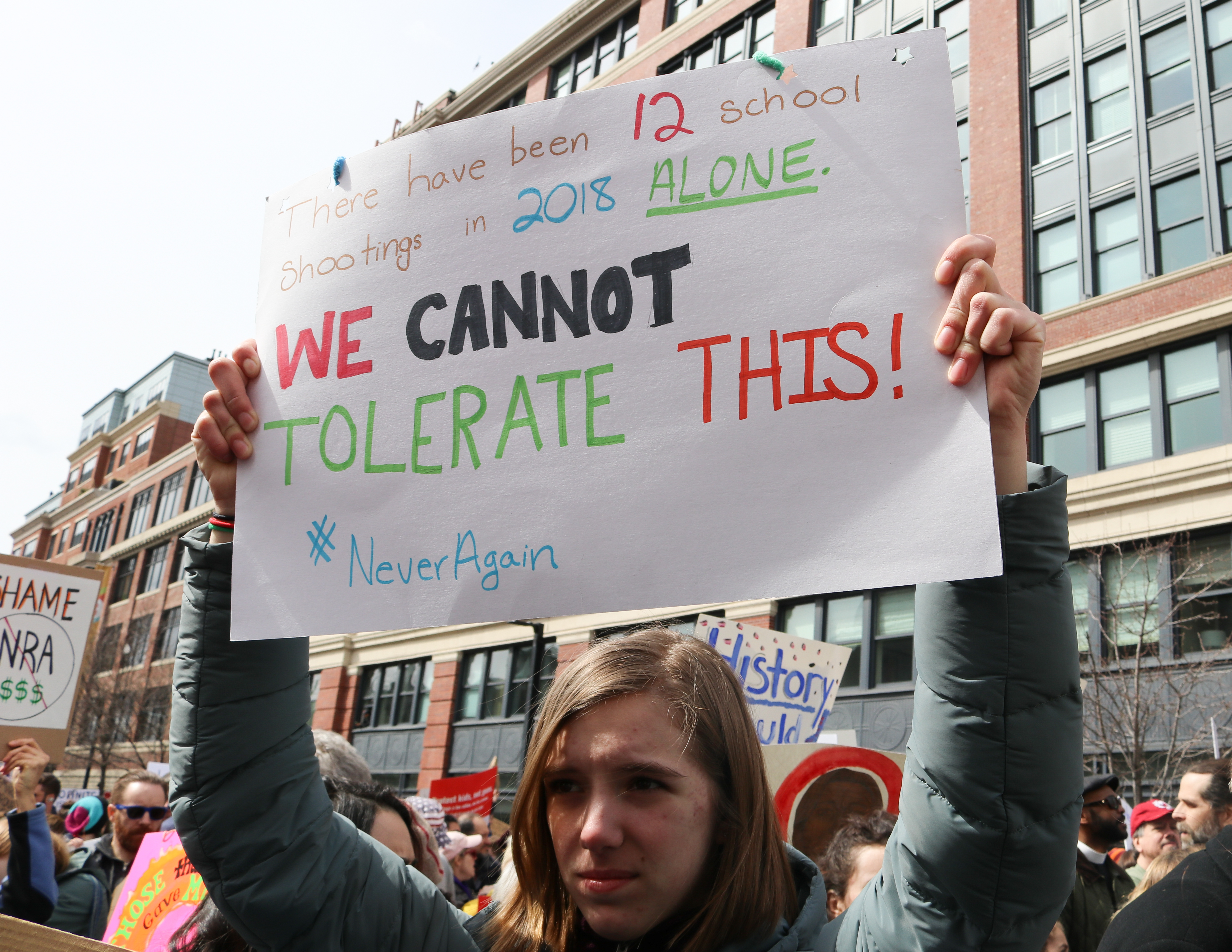On March 24, thousands marched from Madison Park Technical Vocational High School in Roxbury to Boston Common for March for Our Lives, a rally held worldwide to protest gun violence following the shootings at Marjory Stoneman Douglas High School on Feb. 14.
Leonor Muñoz, a Marjory Stoneman Douglas High School student, stood alongside her sister, Northeastern University student Beca Muñoz, to deliver a speech that highlighted the trauma their hometown sustained and explained the differences between affluent and working class communities when it comes to gun violence.
“My little town was no longer what it has always been…My school will now always be remembered for what took place on February 14, 2018. It doesn’t matter how many dance competitions we win or how good our cross country team is. It will always be known to people across the nation that it is where 17 high school students were robbed of their lives,” Leonor said.
The history of gun violence extends far beyond the tragedy in Parkland, Florida, Leonor said. “Us Parkland kids, we are not special. I wish we were the only ones to have known this. But we’re not,” she said. “We’re not especially articulate. We’re not super charismatic. And we’re not the first students to be fighting for this. This movement was always here. People were always here screaming for change.”
Beca added that the plight of gun violence is especially harrowing for communities of color. “We cannot be complacent with a system that designates certain areas as safe while communities of color continue to be neglected…We are here united until no child ever lives with the fear of a bullet.”
Leonor pointed to the fatal shooting of Huffman High School student Courtlin Arrington at her high school, located in Birmingham, Alabama, on March 9. “She was a senior, like me. She was going to be a nurse. She was shot in school and no one heard of her death because she was black,” Leonor said.
Other speakers, like activist Monica Cannon-Grant, voiced similar concerns. “For years, our [communities of color] young people have marched, screamed, and protested. Black Lives Matter. And the response was silence. Silence is violence.”
Cannon-Grant added that communities of color in Boston are neglected. “I stand before you, as I’ve mentioned, as lead organizer for Fight Supremacy. But more important, as a mother. A mother of five teenagers here in the city of Boston and I live in Roxbury. I’m an activist and everyday I fight to protect black and brown students against gun violence,” she continued. “In communities like Dorchester, Roxbury, Mattapan, Hyde Park, Roslindale, Jamaica Plain…It goes unheard. ”
Nino Brown, an organizer and teacher at Oliver Wendell Holmes School, asked for a moment of silence for Stephon Clark, an unarmed black man shot to death in his backyard by the Sacramento police. “I teach in Dorchester at the [Oliver Wendell Holmes School] and all of my students come from working class communities that are plagued by gun violence. Oppressed people, colonized people, are sick and tired,” he said. “We are sick of the rampant violence, the gun violence that disproportionately affects communities of color…And it is unfortunate that it took such a tragic, tragic incidence for us to have this dialogue. But now it is our duty to fight, and it is our duty to win, because our future depends on it.”
While the event struck a somber tone, it also served as a stepping stone to activism for some student participants like high schooler Thea Eiland.
“This is my first big political rally or march. It’s super cool being here and I’ve never been super politically active before so I feel like this is a step in the right direction for me,” Eiland said. “I came here today to represent the students whose lives were lost because of lack of gun control. And also for the future of those students who are left behind. Because I think that it is important that every student should feel safe in their school and it should be a safe environment.”
Gwyneth Smedley, also a high school student, said that she views March for Our Lives as a movement that puts students at the forefront, and that more students should speak up.
“It’s a really good way to show that just because we’re under 18 doesn’t mean we don’t have an opinion or can’t have an opinion,” she said. “We can speak about what we need as well especially as it’s our future.”

Leave a Reply
You must be logged in to post a comment.